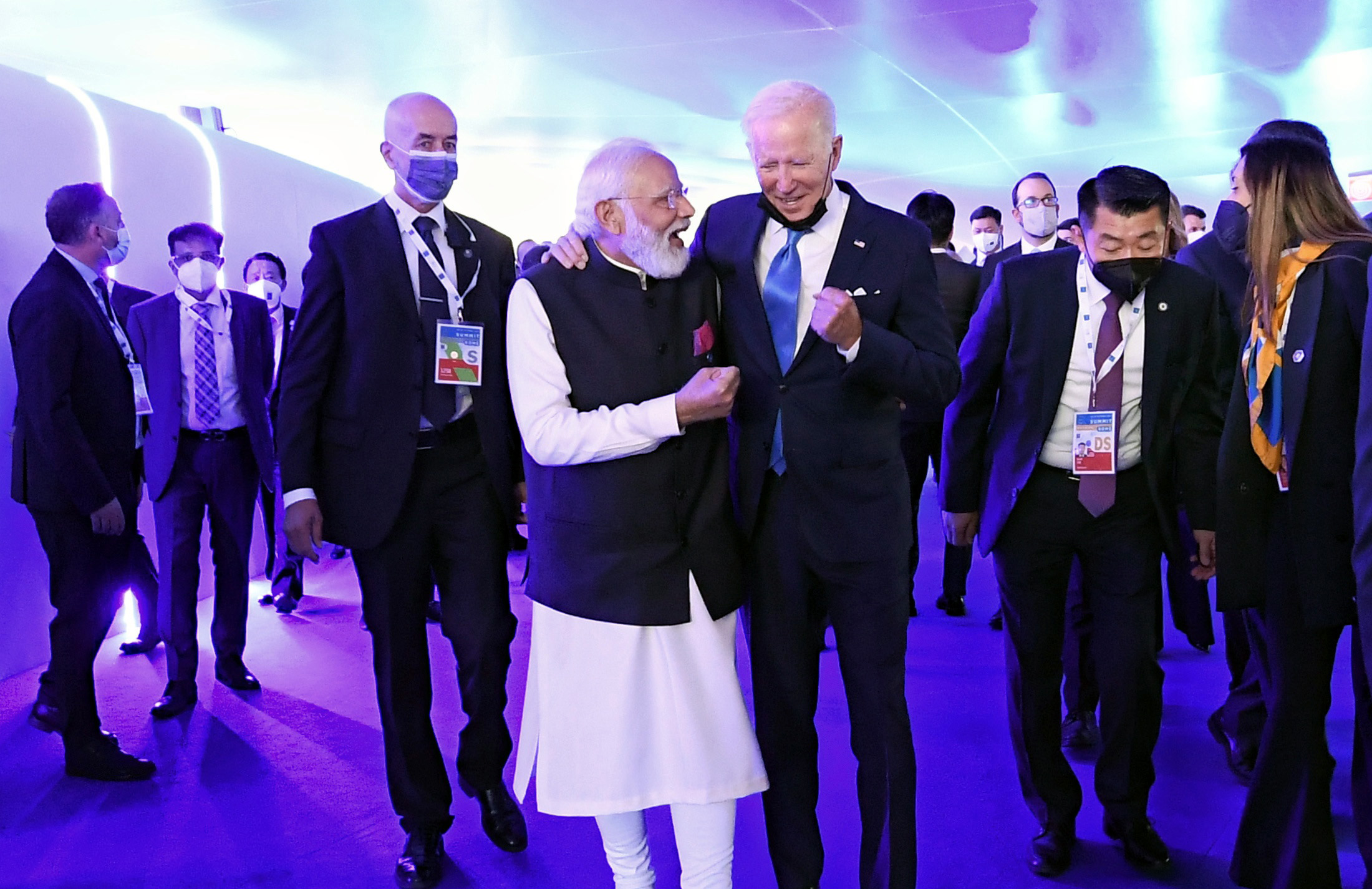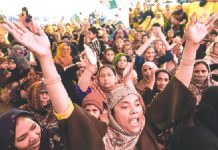
After assuming the presidency of G-20, India is set to propel geo-economic
interests of the south at the next conference of the forum which it is scheduled to host in 2023. The Indian presence in the grouping has given confidence to economically weak countries of Asia, Africa and Americas.
India as G-20 president would be assisting the world economy for restoring supply line, which continues to be disrupted following the outbreak of pandemic in 2019 and the ongoing Russia-Ukraine conflict for the past 10 months.
A number of countries in Asia and Africa are critical of its limited membership, but the Indian presence had added a confidence of a large number of the economically weak countries of Asia, Africa and Americas.
The perspective of the founders of modern India regarding her ties with the developing world popularly called non-aligned movement has suddenly re-echoed in G-20. However, there is a subtle difference between the non-aligned movement and the current efforts in that previously, it was an effort to keep off from the military blocs.
Some optimists for peace do not rule out the possibility of a Biden-Putin summit in the sidelines of the G-20 conference in 2023 scheduled in India.
Indian Prime Minister Narendra had spelt out India’s commitment to the people of Africa without imposing her own suggestions for the development of the people. He had stated about India’s policy for years ago in 2018 in Kampala while addressing Parliament of Uganda reinforcing her ties with Africa. Like Indians, Africa too had shared the dark history of colonialism. Modi, perhaps, re-echoed it in November 2022, when at the Bali summit, he reminded the developed world about the economic challenges of the South, comprising the people of Asia, Americas and Africa. The occasion was a formal handover of the baton of the presidency of G-20 to India at Bali in Indonesia.
India, now at the threshold of being in the first row of the technologically empowered nations, has reinforced her readiness to share her knowledge and resources with the South, thus, re-echoing the fundamentals of the Indian state. It was also a reminder to the rich members of the G-20 comprising the USA. U.K., France, Germany, China, Russia and the European Union that goals of the geo-economics and stability in the world order would remain a mirage without the uplift of the people of the South. India as G-20 president would be assisting the world economy for restoring supply line, which continues to be disrupted following the outbreak of pandemic in 2019 and the ongoing Russia-Ukraine conflict for the past 10 months.
Some optimists for peace do not rule out the possibility of a Biden-Putin summit in the sidelines of the G-20 conference in 2023 scheduled in India. It may be noted that the US President Joe Biden and his Chinese counterpart, Xi Jinping had met for more than three hours in November 2022 at Bali just on the eve of the G-20 conference. It is believed that the summit has favourably impacted the world economy. Putin did not come at the Bali conference, but he might be attending the conference in India, the hopeful does believe.
The Indian Initiative
Modi’s statement before Parliament of Uganda, Kampala, in 2018, is being frequently quoted worldwide that instead of offering any turn-key solutions to their respective challenges; India offered that what she could do for empowering them to fight their rampant poverty. He had expressed the Indian desire in assisting the people of Africa in achieving their inspirational goals as they envision.
It was the reaffirmation of this Indian policy at the G-20 summit at Bali in November this year, which India is expected to carry forward or steer through during 2023. India’s close ties with the third world countries during the cold war years provide a readymade background for an Indian initiative.
The perspective of the founders of modern India regarding her ties with the developing world popularly called non-aligned movement has suddenly re-echoed in G-20. However, there is a subtle difference between the non-aligned movement and the current efforts in that previously, it was an effort to keep off from the military blocs. The Indian diplomacy appears to have now succeeded in fine-tuning the country’s commitment to the deprived nations of the third world.
Forty years ago, the non-aligned movement had faded following the collapse of the USSR in 1991, but India has retained the idealism of the movement by committing her resources for the developing countries. It appears that the contemporary India is reasserting ‘Her tryst with destiny’, Jawaharlal Nehru’s first speech on the midnight of August 15, 1947 that had committed her to the welfare of the mankind. It appears to be reverberating and echoing with India’s renewed commitment to the poor.
An Initiative Reflecting Realities
During the past three decades, the USA had been the the only unquestioned superpower on the earth, but since 2019, especially following the out-break of the Covid-19 pandemic, and in 2022, the Ukraine-Russia conflict, the geo-politics is witnessing paradigm changes. Amidst these developments, the mandarins of the South Block have successfully repositioned India on the basis of the cruel truths of the world politics. India’s foreign minister S. Jaishankar has repeatedly asserted that India has retained her fundamental policy regarding peace and cooperation, but we have been trying to shed off rhetoric and should be based on the ground realities. India is not against any country, but if the US-led western powers feel threatened that China has been quietly nibbling away their formidable economic power base, they have to work out their own solutions.
Professor Muqtedar Khan of Delaware University, an Indian-origin political scientist in America, has appreciated Modi’s vision regarding India’s role in G-20. His decision to focus on the economic woes of the South in G-20 is going to empower India in retaining her old constituency in the developing world. According to him, India’s key role in the G-20 could not have been more timely and appropriate. She assumes the G-20 Chair, while presiding the UN Security Council in December, 2022. During 2023, India while presiding over the Shanghai Cooperation Organization would be in a multiple-role in the geo-politics.
For Indians, December is a pleasant month. In Europe and North America, bitter winters have already set in. For Europe, it is not just braving the climate, but the inclement weather is accompanied by the on-going war in Europe, tensions in the India-Pacific region, and unprecedented challenges before the world economies.
Propelling World Economy
The G-20 had come into being in September 1999 as a coordinating forum of the industrialised world as well as well as of the developing countries. With the expansion of the World Trade Organization, it has emerged as an intergovernmental forum of world’s most powerful economies which also gives voice to the developing countries.
The G-20’s chair is offered on a rotational basis, but for India and her leadership, the task is really challenging due to fragile world economy and the war in Europe. She is preparing to address major issues related to the global economy, such as international financial stability, climate change mitigation and sustainable development of the vast majority of the Asian, Americas and African continents.
In financial terms, the G20 comprises both industrialised and developing countries. It accounts for around 80 per cent of the gross world products, 75 per cent of international trade and two third of the global population, which has just crossed eight billion. It also accounts for 60 per cent of world’s land area. During the last 13 years, it has emerged as a primary institution for international economic and financial cooperation. A number of countries in Asia and Africa are critical of its limited membership, but the Indian presence had added a confidence of a large number of the economically weak countries of Asia, Africa and Americas.
With Modi’s emphasis on digital communication, India’s underlying vision of “Vasudhaiva Kutumbakam” (the world is one family), is best encapsulated by the motto “One Earth, One Family, One Future”. Apart from this world view, the G-20 meetings would be taking place across in as many as 40 cities. Apart from giving a global respect to India, it would be impacting and enabling a vast population of the country exposed to the global issues enabling them to understand the linkages between inclusive development, gender equality, peace and security and the full use of technological innovations for universal benefit.













